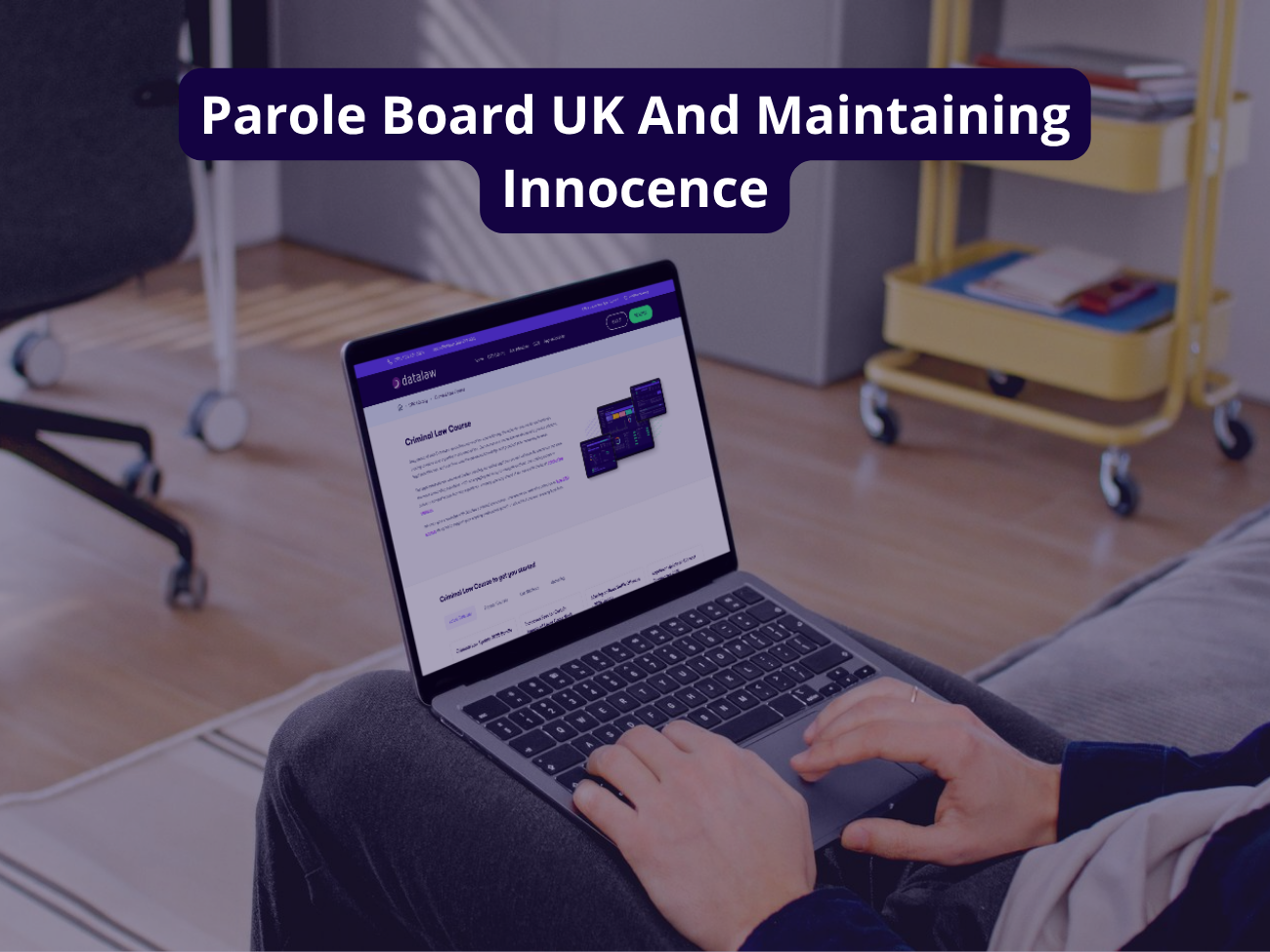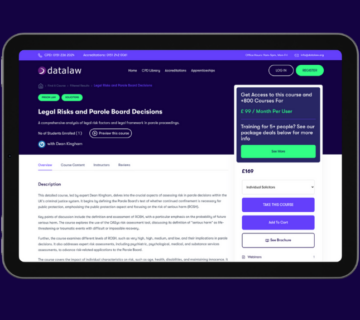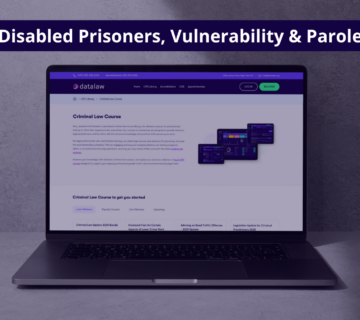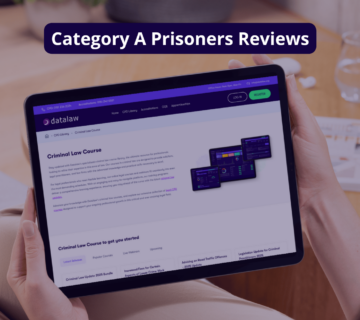The intersection of maintaining innocence while seeking parole presents unique challenges in the legal arena. This complex dynamic requires a nuanced understanding of legal principles, parole board UK processes, and the psychological aspects of denial. The information on Parole Board UK and Maintaining Innocence is provided by Datalaw’s Prison Law course providing invaluable insights into this intricate area of law.
Download Our Free “Parole Board UK And Maintaining Innocence” E-Book
-
The Historical Context of ‘Denial’ in the Prison Service
Traditionally, prisoners who maintained their innocence, often labelled as ‘in denial,’ faced significant hurdles in the parole process. They were typically seen as non-compliant with sentence planning and rehabilitation programs. However, recent shifts in approach have somewhat lessened these obstacles, offering a more balanced perspective.
-
Legal Stance on Maintaining Innocence
The legal system recognises that maintaining innocence should not automatically preclude parole release. Key legal decisions have established that completing accredited offending behaviour programs is not a mandatory prerequisite for parole, and each case should be assessed on its own merits.
-
Risk Assessment in the Context of Innocence
Parole boards often grapple with assessing the risk posed by prisoners who deny their guilt. It’s a complex task to gauge future behaviour based on the prisoner’s stance towards their conviction. Legal practitioners need to be adept at navigating these assessments, balancing the denial against other risk factors.
-
The Role of Offending Behavior Programs
Historically, access to certain programs required an admission of guilt. However, newer programs like Horizon and Kaizen offer avenues that do not focus extensively on the index offence, thereby not necessitating an admission of guilt. These programs focus on the concept of ‘Old Me vs. New Me,’ providing alternative pathways for rehabilitation.
-
Reasons for Maintaining Innocence
Various factors may lead a prisoner to maintain innocence, ranging from inability to accept their actions to genuine wrongful convictions. Legal practitioners must consider these diverse reasons when preparing for parole hearings.
-
The Parole Board’s Approach
The Parole Board is required to treat prisoners as properly convicted, regardless of their claims of innocence. This makes the preparation of the client crucial, especially in articulating the reasons behind maintaining innocence, such as ongoing appeals or applications for review.
-
Psychological Research on Denial and Risk
Recent studies have shown that denial does not necessarily predict recidivism, especially among certain types of offenders. This challenges the traditional view that denial is inherently linked to higher risk of re-offending.
-
Datalaw’s CPD Course and Ebook
For legal professionals seeking to deepen their understanding of this complex area, Datalaw’s CPD course on “Parole Board And Maintaining Innocence” is an essential resource. Alongside this, their e-book provides a comprehensive overview, offering practical guidance and theoretical insights to navigate these challenging cases effectively.
Enhancing Legal Practice in Parole Cases
The issue of maintaining innocence in parole hearings is a multifaceted challenge requiring specialised knowledge and skills. Datalaw’s course and e-book equip legal practitioners with the necessary tools to effectively advocate for their clients in these complex situations, enhancing their capabilities and understanding in this critical area of legal practice.



